第270章
Indignant abhorrence, as in Roland, may be here; gloomy sanction, premeditation or not, as in Marat and Committee of Salvation, may be there; dull disapproval, dull approval, and acquiescence in Necessity and Destiny, is the general temper. The Sons of Darkness, 'two hundred or so,' risen from their lurking-places, have scope to do their work. Urged on by fever-frenzy of Patriotism, and the madness of Terror;--urged on by lucre, and the gold louis of wages? Nay, not lucre: for the gold watches, rings, money of the Massacred, are punctually brought to the Townhall, by Killers sans-indispensables, who higgle afterwards for their twenty shillings of wages; and Sergent sticking an uncommonly fine agate on his finger ('fully meaning to account for it'), becomes Agate-Sergent. But the temper, as we say, is dull acquiescence. Not till the Patriotic or Frenetic part of the work is finished for want of material; and Sons of Darkness, bent clearly on lucre alone, begin wrenching watches and purses, brooches from ladies' necks 'to equip volunteers,' in daylight, on the streets,--does the temper from dull grow vehement; does the Constable raise his truncheon, and striking heartily (like a cattle-driver in earnest) beat the 'course of things' back into its old regulated drove-roads. The Garde-Meuble itself was surreptitiously plundered, on the 17th of the Month, to Roland's new horror; who anew bestirs himself, and is, as Sieyes says, 'the veto of scoundrels,' Roland veto des coquins. (Helen Maria Williams, iii. 27.)--This is the September Massacre, otherwise called 'Severe Justice of the People.' These are the Septemberers (Septembriseurs); a name of some note and lucency,--but lucency of the Nether-fire sort; very different from that of our Bastille Heroes, who shone, disputable by no Friend of Freedom, as in heavenly light-radiance: to such phasis of the business have we advanced since then! The numbers massacred are, in Historical fantasy, 'between two and three thousand;' or indeed they are 'upwards of six thousand,' for Peltier (in vision) saw them massacring the very patients of the Bicetre Madhouse 'with grape-shot;' nay finally they are 'twelve thousand' and odd hundreds,--not more than that. (See Hist. Parl. xvii.
421, 422.) In Arithmetical ciphers, and Lists drawn up by accurate Advocate Maton, the number, including two hundred and two priests, three 'persons unknown,' and 'one thief killed at the Bernardins,' is, as above hinted, a Thousand and Eighty-nine,--no less than that.
A thousand and eighty-nine lie dead, 'two hundred and sixty heaped carcasses on the Pont au Change' itself;--among which, Robespierre pleading afterwards will 'nearly weep' to reflect that there was said to be one slain innocent. (Moniteur of 6th November (Debate of 5th November, 1793).)
One; not two, O thou seagreen Incorruptible? If so, Themis Sansculotte must be lucky; for she was brief!--In the dim Registers of the Townhall, which are preserved to this day, men read, with a certain sickness of heart, items and entries not usual in Town Books: 'To workers employed in preserving the salubrity of the air in the Prisons, and persons 'who presided over these dangerous operations,' so much,--in various items, nearly seven hundred pounds sterling. To carters employed to 'the Burying-grounds of Clamart, Montrouge, and Vaugirard,' at so much a journey, per cart; this also is an entry. Then so many francs and odd sous 'for the necessary quantity of quick-lime!' (Etat des sommes payees par la Commune de Paris (Hist. Parl. xviii. 231).) Carts go along the streets; full of stript human corpses, thrown pellmell; limbs sticking up:--seest thou that cold Hand sticking up, through the heaped embrace of brother corpses, in its yellow paleness, in its cold rigour; the palm opened towards Heaven, as if in dumb prayer, in expostulation de profundis, Take pity on the Sons of Men!--Mercier saw it, as he walked down 'the Rue Saint-Jacques from Montrouge, on the morrow of the Massacres:' but not a Hand; it was a Foot,--which he reckons still more significant, one understands not well why. Or was it as the Foot of one spurning Heaven? Rushing, like a wild diver, in disgust and despair, towards the depths of Annihilation? Even there shall His hand find thee, and His right-hand hold thee,--surely for right not for wrong, for good not evil! 'I saw that Foot,' says Mercier;
'I shall know it again at the great Day of Judgment, when the Eternal, throned on his thunders, shall judge both Kings and Septemberers.'
(Mercier, Nouveau Paris, vi. 21.)